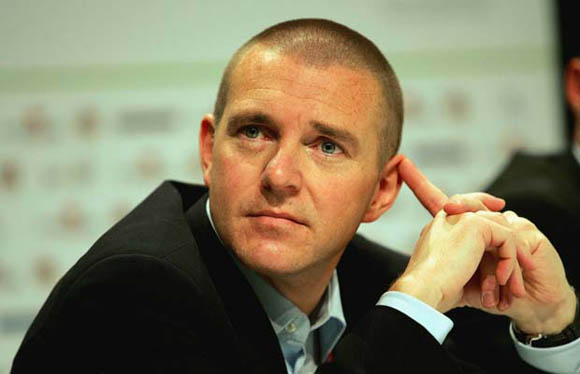Paul Barber – Chief Executive Officer, Vancouver Whitecaps FC
February 21, 2011
By Martin Laurence :
Paul Barber was appointed as Chief Executive Officer of MLS’ Vancouver Whitecaps FC in March 2010 after serving as executive director at Tottenham Hotspur for five years. In his time with the Premier League club, Barber reported to chairman Daniel Levy and was responsible for all of the club’s key operational divisions, including commercial areas, hospitality and ticketing as well as international tours and friendly matches.
Before then he worked as commercial and marketing director at the Football Association (FA), where he was tasked with developing programs for marketing, communications and commercial affairs, including broadcasting rights of the England national team and FA Cup. Barber’s sporting allegiances do not simply revolve around football and he is a fond cricket supporter having served as a non-executive director for Hampshire County Cricket Club.
What could persuade a passionate football fan to give up a place at his boyhood club and travel halfway around the world to a less established league?
Leaving Tottenham Hotspur after five years was very difficult. I was lucky enough to work with my boyhood club, which for me, was a dream come true. I was also lucky enough to spend a similar amount of time with my national team (England), so I feel privileged to have occupied two of the best roles in English football.
However, opportunities such as leading Vancouver Whitecaps FC into Major League Soccer don’t come around too often, and moving to North America was just one of those opportunities that I didn’t feel I could turn down, either professionally or personally. It’s a great opportunity for me and my family to have a different lifestyle and to enjoy taking a club as famous as Whitecaps FC into MLS.
How have the challenges you have faced at Vancouver Whitecaps been different to the challenges you faced at Tottenham?
The obvious difference is the fact that football in England is part and parcel of how people grow up in that country. From the moment you walk, you pretty much have a football at your feet. That’s not the case in North America. There are many other fantastic sports that are played here, and football is still emerging, growing, and developing. One of the big challenges here is selling the game, as well as the club.
Can football – soccer – compete with the major American sports in the long term?
I definitely think it can and at a number of levels. We’ve got a long way to go in places, but we’re part of the global game and we’re part of the biggest game in the world. Our sport is played by more countries, covered by more broadcasters, played by more people, and followed by more fans than any other sport in the world. In Vancouver, more people play our sport than play Canada’s favourite pastime, ice hockey, across the whole of British Columbia. Things are changing fast, and although it will take a little bit more time than the next couple of years, I have no doubt that football will become the biggest sport in North America too.
How much of a blow was it to the development of the sport in North America that the USA did not win the 2022 World Cup?
It was disappointing, but I don’t think it is going to derail the great work that has been going on with Major League Soccer, and by football authorities across North America. It’s one of those major events on the horizon that you can look forward to and use to support the development of the game, as well as build profile and excitement around it. On this occasion, it wasn’t to be – for the United States or England – so we must move on and keep doing the good work we’ve been doing. As someone who supported England’s bid, nothing would have given me more pleasure than seeing FIFA award England the 2018 World Cup and the United States the 2022 World Cup. It didn’t happen, so now we build (in both countries) without it.
Vancouver Whitecaps FC secured a very good shirt sponsorship deal, one of the highest in Major League Soccer. Was the process different to signing a shirt sponsor in Europe?
It was actually a very similar process to Europe. We targeted a number of companies that we thought would benefit from having their brand on our jerseys. We made our presentations to various levels within those organizations, and a clear favourite emerged in Bell Canada. As one of the largest telecommunications companies in North America, we always felt they were a great brand fit for us. We got along very well with their executives and they liked the philosophy of our club. Bell’s marketing strategy fitted to having a high-profile sponsorship on the western side of Canada. There is also a fantastic fit between live, top-level sport and telecommunications, particularly in the mobile area. All of those things came together very nicely and we’re delighted to have Bell on board as our Premier Founding Partner. To date, they’ve been a first-class partner in every respect. They are a world-class organization.


